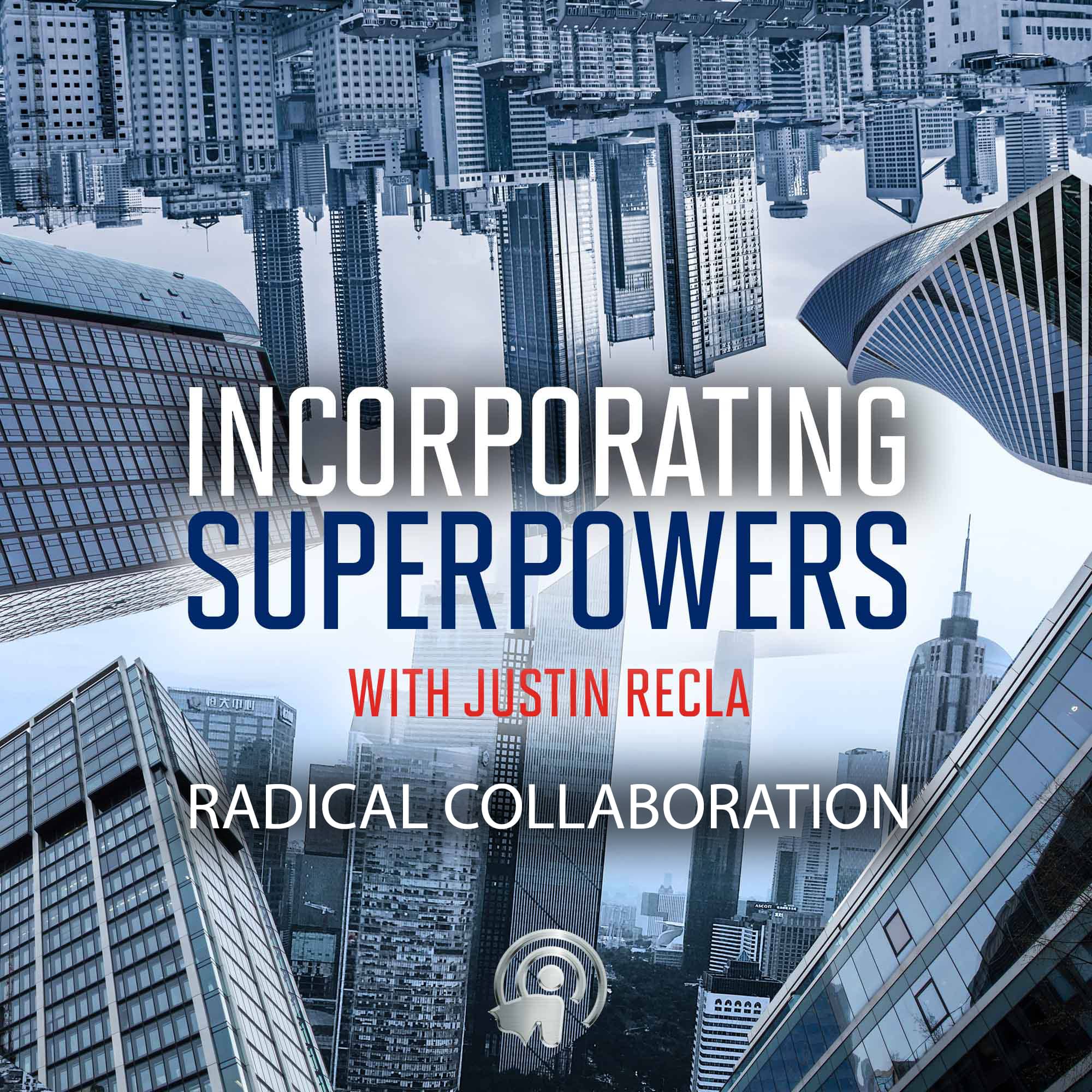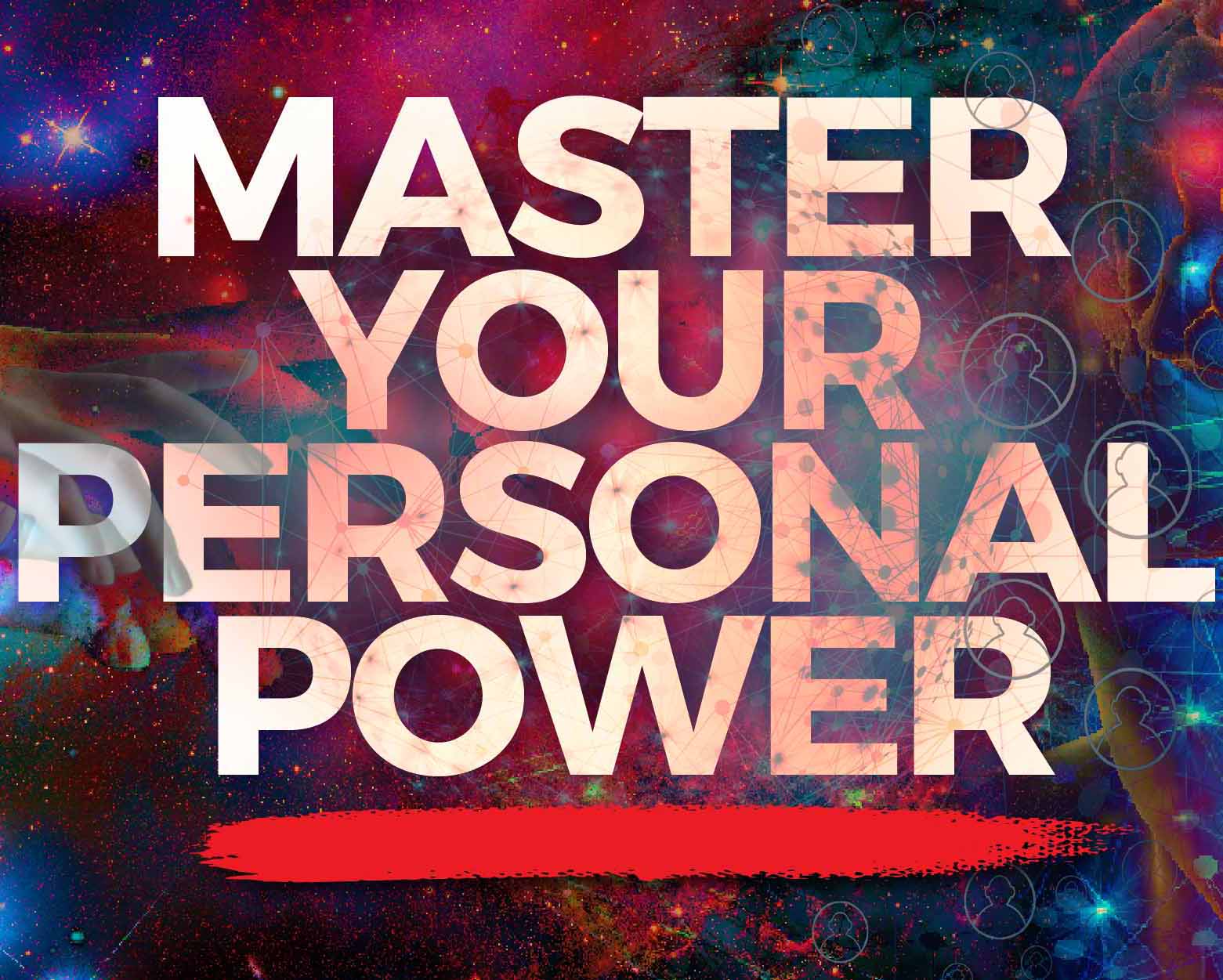
Radical Collaboration
How can we practice radical collaboration? In this episode of Incorporating Superpowers, host Justin Recla talks with guest James Tamm who worked in the collaboration space for over 30 years. His Tedx Talk on Reducing Defensiveness helps identify the areas we as individuals need to focus on to collaborate better. They discuss how our minds go into a defensive state and lower our IQs. As a result, we tend to drag others down with us, meaning nothing good gets accomplished. Radical collaboration can help. Tune in to start practicing radical collaboration today!
Justin Recla:
Welcome back to Incorporating Superpowers. This is the show where we bring people that are doing things differently to the forefront, to highlight how they are impacting the world. And how it’s important for these changes in business and life and relationship to come to the forefront in everything that we’re doing. We have to evolve. We can’t be stagnant and we can’t just rely on the ways of the past. And my guest today is doing some really, really neat stuff because my guest today is James Tamm. He is the author of Radical Collaboration and it’s actually in the second printing.
And he’s also got an amazing TEDx Talks on reducing defensiveness. And these two concepts are near and dear to my heart, especially here being part of Super Power Experts. The concept of Radical Collaboration that Jim and I were talking about before the show. And our vernacular is synergistic collaboration and how do we create win-win-win situations? And so I’m going to bring Jim onto the show because Jim has got a lot to say, and I can hardly wait to learn more from him on the show. Jim, welcome to the show.
James Tamm:
Thank you very much, Justin. I appreciate being here.
Justin Recla:
Now, Jim, you’ve got quite the background. You’re a former judge and you’ve got over 40 years of experience in conflict resolution.
James Tamm:
Well, it’s closer to 50 now, 55 actually. I’m getting older. Yeah, I was a judge for about a little over 20 years. I worked for the state for 25 years. And now I teach in a number of programs.
Justin Recla:
So to say that you’ve seen how defensiveness and how conflict and how competition between parties comes into play is kind of an understatement?
James Tamm:
That’s true. In my role as a judge, I think I’ve mediated oh, somewhere between 1500 and 2000 labor disputes.
Justin Recla:
Oh wow.
James Tamm:
My jurisdiction was employment conflicts and so I’ve seen the good and I’ve seen the bad.
Justin Recla:
Wow. This is so even more important. And this makes it even more important, especially for this show being Incorporating Superpowers into the business world resolving employment conflicts. Talk to me about your experience of this is how the concept of Radical Collaboration came about? What were some of the elements that you saw in those conflicts between the people that you were having to judge and serve? What were some of the elements that came up for you that made you realize that collaboration was the best road?
James Tamm:
Sure. Well, the two things that I saw more than anything else was, that people lacked skills in collaboration. I mean, no one teaches this. No one has a class in collaboration when you go to college these days. So they didn’t know how to work together effectively. And then second, they would get defensive. So they had a lack of self-awareness about that and that was causing problems, primarily relationship problems.
So if we could figure out how to deal with the relationship problems and give them the skills necessary to resolve the typical conflicts that come up in any long-term working relationship, that made just a radical difference. That’s in part why we called it, the book is called Radical Collaboration. Because the level of collaboration that we were advocating at the time was pretty radical for that time. We started this back in the late 1980s, and early 1990s. And then those organizations that were actually doing it produced pretty radical results too.
Justin Recla:
I love that because I mean, I’m coming from the government sector. I mean, I’m a former counterintelligence agent, the concept of collaboration as we were so segmented out on a need-to-know basis and who we could talk to and what we could talk about was so limited that it created its own unique defensive posturing within the organizations that we are part of in and of itself that nothing really ever got done.
James Tamm:
Yeah. Well, we see that in organizations today too. I mean, I think organizations are doing better dealing with obnoxious behavior, but they’re doing worse dealing with conflict avoidant behavior. And people don’t want to deal with conflict, it’s stressful for them. And so they avoid it and they create what we call a pink zone type of culture, which is a conflict-avoidant, passive-aggressive type culture. People aren’t very direct. They’re not willing to give feedback. They’re not willing to say what’s really on their mind. You go into a pink zone meeting and everyone’s going, “Okay. Yeah, sure. Well, we can do that.” And then when they leave the meeting, guess what happens? Absolutely nothing.
Justin Recla:
No, because they’re all bad-mouthing each other, right?
James Tamm:
Yeah. But nobody’s willing to stand up and say, “Hey, this is a really bad idea. We shouldn’t put our energy in here or our money,” because they’re afraid of being accused of not being collaborative.
Justin Recla:
Yeah. Or not being a team player or saying the wrong thing and maybe getting fired, right? All of that’s in there. There’s well, what I see in what you’re bringing to the table is you’re giving people the opportunity to really take a look at that internal journey that we all have. Whether it be employee, entrepreneur, whatever that is. It’s like, “Okay, who are we? And what are our own fears? And is it okay? Is it safe for us to be vulnerable in a work environment?”
James Tamm:
Yeah, so much of what I see is fear-driven. Every time somebody gets defensive, it’s because there’s some underlying fear there. And if you’re going to have an effective workplace, there’s just been a huge amount of research showing that people need to feel psychologically safe. They need to be able to raise difficult issues and deal with them directly.
Justin Recla:
Well, I agree, this is a great pause for us here because this is really where I think the meat and potatoes of this conversation are going to come in is around your TEDx Talks. Around the defensiveness on how to reduce defensiveness, especially in the workplace. But before we go on break, where can people go find more information about you?
James Tamm:
There’s a website, RadicalCollaboration.com. They can look me up on YouTube, the TEDx Talk on Defensiveness, and then the Radical Collaboration book.
Justin Recla:
Fantastic folks. Go and take a look at Radical Collaboration. These concepts that if you’re having challenges in your own business, if you’re having challenges in your relationships. These concepts of collaboration, especially Radical Collaboration are the way to bust through the things that are holding you back in not advancing your life, and your business in the direction that you want, and understanding collaboration is the fastest and easiest way to there. Stay tuned. We’ll be right back after this break.
For the best listening experience, download the Superpower Network App
Podcast: Play in new window

